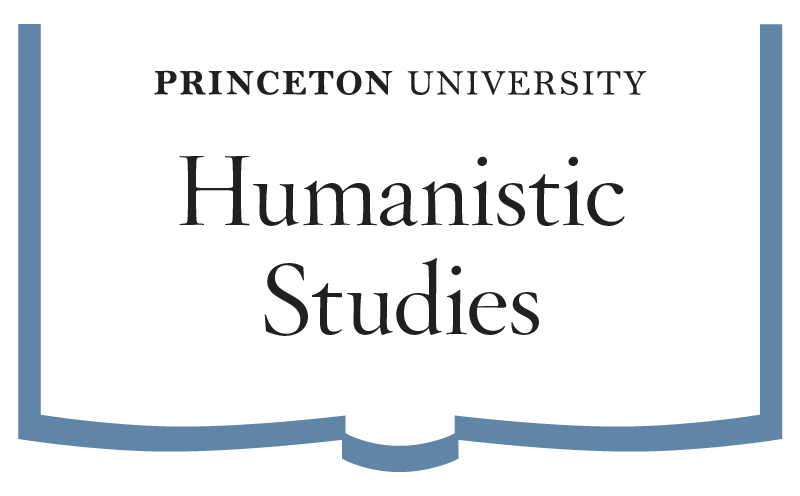kfm2@princeton.edu
I’m a Comparative Literature major with a certificate in Theater.
Role(s) held in the Humanistic Studies Program:
Humanities Mentor, Symposiarch
Activities on campus:
I am the producer for Princeton’s All-Nighter. I also participate in theater—both onstage and offstage—through the Program in Theater at the Lewis Center for the Arts. Previously, I served as the assistant technical director for the Princeton University Players, as a board member on the Princeton Performing Arts Council, and as a member of Students for Prison Education and Reform (SPEAR).
Honors:
I am a recipient of the Outstanding Work by a Freshman and Sophomore Award from the Program in Theater. I was also chosen to speak at the Mary George Research Conference for the Princeton Writing Program.
Why I decided to study the humanities:
After receiving the Princeton acceptance packet in the mail, I was interested in taking the HUM Sequence because of a question on the HUM pamphlet: What makes us human? I consider the HUM Sequence as the foundation for my education and life at Princeton. Through the Sequence, I able to engage with classic texts and have thoughtful conversations with the professors from the Sequence. In fact, during my sophomore year, a few of my peers and I started a reading group where we would gather together every Tuesday night and read Paradise Lost with one of our professors from the Sequence. More importantly, some of my closest friends at Princeton are peers who also took the Sequence. I think one of the strongest aspects of the humanities at Princeton is that there is a community of humanities students, alumni, and professors who continue to engage in discussions about what it means to be human long after precept ends.
What I have gained from the humanities:
During the HUM Sequence, one of the topics that interested me was how knowledge gets passed down throughout history. I noticed that I kept considering these questions while analyzing texts in translation during the Sequence, and it inspired my choice to concentrate in Comparative Literature. Through humanistic studies, I have learned how to be critical and interrogate the language and systems that construct our given realities. No matter where life leads after Princeton, I know that this method of critical thinking will continue to inform my academic and personal life.
Independent work:
My first junior paper “‘Your Mind Can’t Keep Up With Your Body:’ Disconnect, Passivity, and the Passive Voice in Haruki Murakami’s UFO in Kushiro (UFOが釧路に降りる)” was a close reading of the first three paragraphs (four in English) of Murakami’s short story. In the paper, I focused on how Murakami juxtaposes a global with a personal tragedy to identify and complicate two dichotomies: the personal and global and connection and disconnect.
In my second junior paper, I compare Yoko Tawada’s 2011 Japanese text 雪の練習生 and Susan Bernofsky’s 2016 English translation Memoirs of a Polar Bear to highlight how Yoko Tawada render borders insubstantial through the depictions of the fantastic and the immaterial in her text. Further, by depicting these border transgressions, Tawada’s Japanese text and Bernofsky’s translation complicate the monolingual notion of nation, time, space, and “the self.”
For my senior thesis, I plan on continuing my research on the role of migration and border crossings in post-modern Japanese texts. In particular, I hope to consider the research questions: When a magical realist or surrealist Japanese text calls attention to performance and thereby spectacle, what does it allow the given text to explore? What relationship do performance and spectacle have to migration and border crossings in magical realist and surrealist texts? Through the lens of performance studies, I hope to analyze the role of the fantastic in texts about migration and exile.
HUM Sequence fall break trip:
In my sophomore fall, I traveled to Greece with the HUM Sequence. During our trip, my interests were piqued by how modern Greece interacts with its own past, particularly why people choose to reconstruct buildings and how structures like the Parthenon may lose its authenticity through these reconstructions. Just as the Parthenon is a structure that has been repurposed to preserve the memory of the past, my research centered around objects that serve the purpose of memory. At the National Archaeological Museum in Athens, I analyzed the curation of these ‘objects of memory’ by studying Agamemnon’s death mask as well as several depictions of Greek theatre masks. It was a really wonderful experience, and one of my peers and I were given access to a part of the museum (through a special elevator!) because of our interactions with the people at the museum. The trip is an amazing experience, and I am really grateful for the opportunity to study in Greece.












